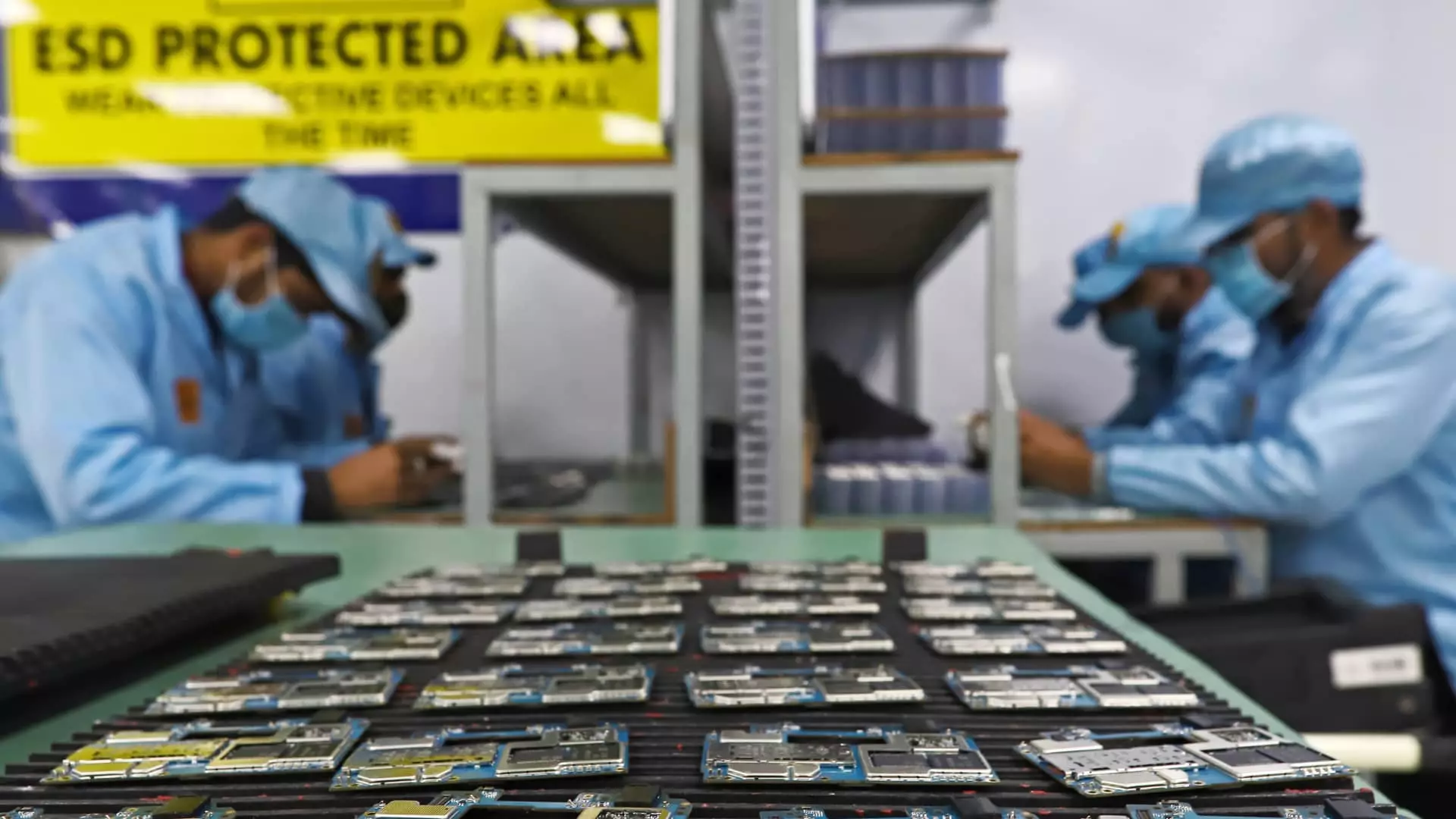India has set its sights on becoming one of the top five semiconductor producers globally within the next five years. According to Ashwini Vaishnaw, the minister of electronics and information technology, railways, and communications, this move is crucial to establishing India as a key player in the semiconductor market. The global value chains and supply chains in the semiconductor industry are intricate, but India is determined to carve out a significant presence in this sector.
As of December, Taiwan boasts approximately 46% of the global semiconductor foundry capacity, followed by China (26%), South Korea (12%), the U.S. (6%), and Japan (2%). With China-U.S. tensions persisting, many companies are looking to diversify their semiconductor supply chains, presenting an opportunity for India to emerge as a reliable partner in the electronics manufacturing industry. India aims to position itself as a trustworthy value chain partner across various sectors that rely on semiconductor technology.
India’s approach to attracting semiconductor investments goes beyond mere outsourcing; instead, the country is focused on fostering trust with global partners. Referred to as “trust shoring,” this strategy emphasizes India’s reputation as a trusted destination for semiconductor design and manufacturing. Qualcomm’s recent establishment of a design center in Chennai underscores India’s growing importance in the semiconductor industry, creating job opportunities and driving technological innovation within the country.
In a bid to bolster its semiconductor capabilities, India recently inaugurated three semiconductor plants, including a joint venture between Tata Electronics and Taiwan’s Powerchip Semiconductor Manufacturing Corp. The goal is to produce India’s first indigenous semiconductor chip by 2026, paving the way for the country to establish itself as a major semiconductor hub globally. By manufacturing chips locally, India aims to strengthen its position in global value chains while enhancing its technological self-sufficiency.
Despite facing skepticism from investors about its semiconductor manufacturing capabilities, India remains optimistic about its prospects in the sector. With projections indicating that the global semiconductor industry could reach a trillion dollars within the next seven years, India’s emphasis on talent development and manufacturing infrastructure is expected to drive growth in the semiconductor space. The country’s sizable talent pool and focus on enhancing manufacturing competencies position it as a key player in the evolving semiconductor landscape.
India’s ambitions to become a top semiconductor producer globally signify a strategic shift towards technological self-reliance and innovation. By leveraging its strengths in talent development, manufacturing capabilities, and global partnerships, India is poised to make significant strides in the semiconductor industry. With a proactive approach to building trust, fostering innovation, and addressing challenges, India is on track to realize its vision of becoming a prominent player in the semiconductor market.


Leave a Reply